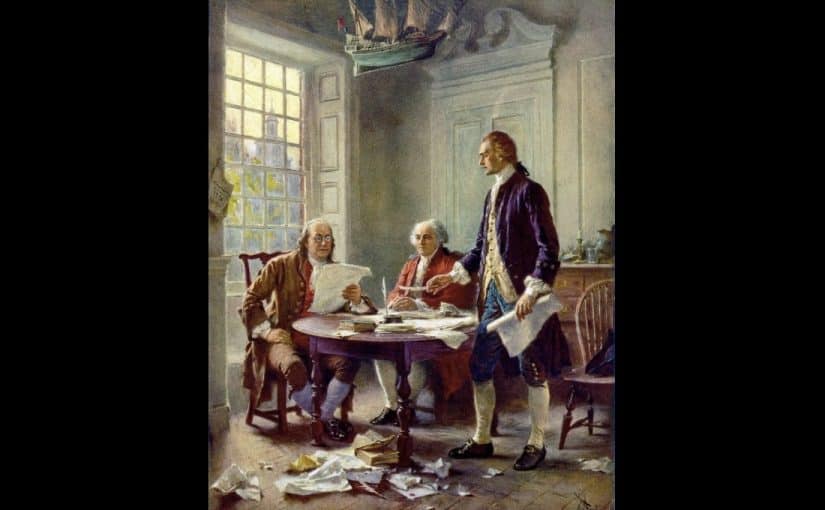Principles of Liberty: Ten Biblical Truths Embedded in the Declaration of Independence
A Five-Session Bible Study
Background Information for Session 5
Government Is Accountable to God
The Quest to Rediscover the Founders’ Perspective
This Bible study series is based on the Word Foundations post titled “Principles of Liberty.” The article highlights ten biblical principles embedded in the Declaration of Independence.
The Bible study series consists of five sessions, with each one exploring two principles.
This article provides background information for the fifth session. A teaching plan is available here.

A PDF file of the above graphic is available here.
It’s high time we rediscover the true meaning of these principles and that we contend anew for them as the Founders understood them. In our series, we’re highlighting words and phrases from the most quoted portion of the Declaration, then we’re demonstrating how they’re linked to Scripture and to biblical truth. In this session (the fifth of five), we are considering the ninth and tenth principles.
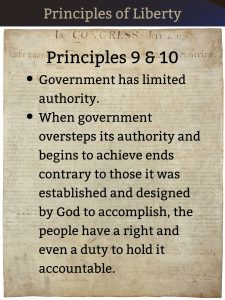
A PDF file of this graphic is available here.
PRINCIPLE NINE
Government has limited authority.
Let’s first examine what the Scriptures tell us about the authority of government. Then we will look at what the Founders staked out in the Declaration of Independence. While the terminology will be slightly different, we’ll find remarkable correlation between the two. Be aware that in our discussion of Principle 9, we’ll touch on Principle 10 as well. However, we will come back around to reemphasize the last principle as a stand-alone item.
Government’s Duty Before God According to Scripture
In his letter to the Christians in Rome (see Rom. 13:1-7), the apostle Paul wrote about the responsibilities Christians have to government before God—but he also wrote about the purpose of government. Under the inspiration of the Holy Spirit, Paul said,
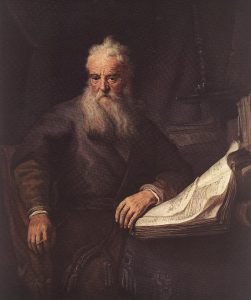
Romans 13:1Let every soul be subject to the governing authorities. For there is no authority except from God, and the authorities that exist are appointed by God. 2Therefore whoever resists the authority resists the ordinance of God, and those who resist will bring judgment on themselves. 3For rulers are not a terror to good works, but to evil. Do you want to be unafraid of the authority? Do what is good, and you will have praise from the same. 4For he is God’s minister to you for good. But if you do evil, be afraid; for he does not bear the sword in vain; for he is God’s minister, an avenger to execute wrath on him who practices evil. 5Therefore you must be subject, not only because of wrath but also for conscience’ sake. 6For because of this you also pay taxes, for they are God’s ministers attending continually to this very thing. 7Render therefore to all their due: taxes to whom taxes are due, customs to whom customs, fear to whom fear, honor to whom honor.
In 1 Peter 2:13-17, the apostle Peter echoes the ideas Paul presented in Romans. Like Paul, Peter also was moved along by the Holy Spirit. He declared,
1 Peter 2:13Therefore submit yourselves to every ordinance of man for the Lord’s sake, whether to the king as supreme, 14or to governors, as to those who are sent by him for the punishment of evildoers and for the praise of those who do good. 15For this is the will of God, that by doing good you may put to silence the ignorance of foolish men— 16as free, yet not using liberty as a cloak for vice, but as bondservants of God. 17Honor all people. Love the brotherhood. Fear God. Honor the king.
While there is much more to be gleaned from these passages about government’s and citizens’ duties before God than we initially will say here, we can summarize several very important points in the following five statements. Not all of these items are explicitly stated in Romans 13:1-7 and 1 Peter 2:13-17, but all of them are consistent with what Paul and Peter wrote and with the rest of what Scripture teaches.
-
-
- Everyone has a responsibility obey governmental authorities.
- Government has legitimate authority, but it does not have absolute authority. The authority it has has been delegated to it by God. Government’s God-assigned task is primarily to punish those who do evil and to commend or reward those who do good. As it does these things, it also maintains order in society, making it easier for Christians to share the gospel effectively (see 1 Tim. 2:1-4).
- When government fails to do its divinely assigned task of keeping order by commending those who do good and punishing those who do evil, and especially when it ignores or rewards evildoers and punishes those who do good, it is misusing its delegated authority, and its actions are illegitimate. When government’s orders and God’s commands directly conflict, Christians are to obey God.
- Especially in a free society such as ours—a republic, which is ruled by law—when government leaders abuse their God-given authority, Christians are obligated to call them out and do all they can to hold them accountable.
- Government has other legitimate tasks, such as maintaining a military force to defend the country and maintaining monetary and economic systems. These are implicitly affirmed in the Bible (for examples, see Deut. 20:1; Matt. 22:15-22). What government is not authorized to do in Scripture is provide for its people. That is a job God gives to the people themselves.
-
Governments Don’t Have Arbitrary Power
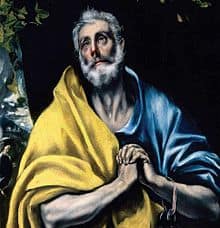
Mark it down! What we do not see in Scripture is an affirmation that government can do whatever it wants and that the people must do whatever government says, in all circumstances. At first blush it may sound this way, because Scripture says by way of Paul, “Let every soul be subject to the governing authorities,” and by way of Peter, “Therefore submit yourselves to every ordinance of man….”
What we do not see in Scripture is an affirmation that government can do whatever it wants and that the people must do whatever government says, in all circumstances.
We must read both of these passages in context. Both Paul and Peter wrote about the duty of believers to obey government as they also were writing about God’s design and purpose for government. Hear Paul and Peter again.
Paul: “Let every soul be subject to the governing authorities. For there is no authority except from God, and the authorities that exist are appointed by God.”
Peter: “Therefore submit yourselves to every ordinance of man for the Lord’s sake, whether to the king as supreme, or to governors, as to those who are sent by him for the punishment of evildoers and for the praise of those who do good.
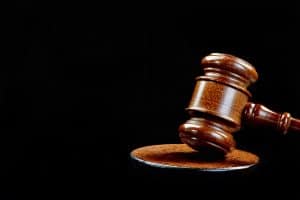
Christians must be good citizens. No question about it. But government is to do its God-assigned duty, too! What is that duty? As we have said, its primary task, according to Scripture, is to commend or reward those who do good and to punish those who do evil. This principle certainly is consistent with the theme of limited authority. Government is powerful, yes; it bears “the sword.” But it has the sword because it has the job of punishing evildoers. When it uses it to push its own set of agendas, it is abusing its power and is very much out-of-bounds.
What the Declaration Says About Government’s Purpose
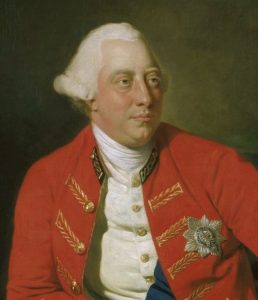
If King George 3rd could have read the Declaration of Independence dispassionately, or if any of us today willingly will read it dispassionately and will look beyond the surface of its beautiful rhetoric, we will see exactly what the Founders believed about government’s purpose. The Founding Fathers were crystal clear:
We hold these truths to be self-evident, that all men are created equal, that they are endowed by their Creator with certain unalienable Rights, that among these are Life, Liberty and the pursuit of Happiness. — That to secure these rights, Governments are instituted among Men, deriving their just powers from the consent of the governed, — That whenever any Form of Government becomes destructive of these ends, it is the Right of the People to alter or to abolish it, and to institute new Government, laying its foundation on such principles and organizing its powers in such form, as to them shall seem most likely to effect their Safety and Happiness.
Earlier in the Declaration, the Founders had spoken of “the Laws of Nature and of Nature’s God,” so it is more than reasonable to assume there is a connection between their reference to the Creator in this section and their reference to the law-giving Deity earlier. He is one and the same!
Let’s summarize what the Founders said about the purpose of government.
-
-
- Government’s role is to secure or protect “unalienable rights,” rights given by God.
- Government’s powers are derived “from the consent of the governed.”
- The power of government is to be “just.”
- “[W]henever any Form of Government becomes destructive of these ends, it is the Right of the People to alter or to abolish it, and to institute new Government.”
-
How Thoroughly Does the Founders’ Perspective on Government Align with Scripture?
Keeping these themes from the Declaration in mind as well as the biblical principles we’ve cited, let’s consider three points.
We first need to address the question, Is the idea that government’s powers would be derived “from the consent of the governed” a violation of the biblical principle that government’s authority is God-given? The answer is no. A government’s deriving its powers “from the consent of the governed simply means involving the people in the process of government, whose authority is God-given. After all, “Governments are instituted among Men,” said the Founders. So they are. And men, or people, decide the form of government under which they will live. Not all get to decide, but at some point, these decisions are or have been made.
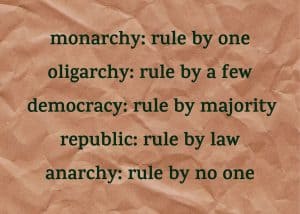 Remember that there are four basic forms of government and one form of non-government. The United States of America is a republic, a government of rule by law. A republic involves all of its citizens in public policy in ways democracies do not. When the people are involved, or when all can be involved, even small groups of people can have a powerful influence over the laws that are made. Christians need to learn this and take advantage of it. Founding Father Samuel Adams said this: “It does not take a majority to prevail… but rather an irate, tireless minority, keen on setting brushfires of freedom in the minds of men.”
Remember that there are four basic forms of government and one form of non-government. The United States of America is a republic, a government of rule by law. A republic involves all of its citizens in public policy in ways democracies do not. When the people are involved, or when all can be involved, even small groups of people can have a powerful influence over the laws that are made. Christians need to learn this and take advantage of it. Founding Father Samuel Adams said this: “It does not take a majority to prevail… but rather an irate, tireless minority, keen on setting brushfires of freedom in the minds of men.”
When the people are involved in the debate over public policy, or when all can be involved, even small groups of people can have a powerful influence over the laws that are made. Christians need to learn this and take advantage of it.
Two other important points are that
-
-
- the kind of government the Founders commended would have “just powers,” and that
- very early in the Declaration of Independence, they spoke of “the Laws of Nature and of Nature’s God.” In doing so, they effectively placed everything they would declare in the document under that overarching umbrella.
-
So, we summarize our first point this way: A government’s deriving its powers “from the consent of the governed” is consistent with the biblical principle that government’s authority comes from God. We see this in that the powers of the kind of government the Founders affirmed were “just.” This implies the powers they had in mind aligned with, or that they fit, God-assigned duties for government under “the Laws of Nature and of Nature’s God.”
A government’s deriving its powers “from the consent of the governed” is consistent with the biblical principle that government’s authority comes from God. We see this in that the powers of the kind of government the Founders affirmed were “just.” This implies the powers they had in mind aligned with, or that they fit, God-assigned duties for government under “the Laws of Nature and of Nature’s God.”
Second, the Founding Fathers said that to secure or protect unalienable, God-given rights, governments are established. Does this idea conflict with the biblical principle that governments exist primarily to commend or reward those who do good and to punish those who do evil? The answer is an emphatic no! The two are one and the same!
Recall this exercise, which you used in Session 4. It affirms and establishes that “The Decalogue, or the Ten Commandments, is a list of moral responsibilities, but it also is a list upholding negative rights.” Go here for brief descriptions of negative and positive rights.
Thus, when government commends those who do good and punishes those who do evil, it is fulfilling its biblical mandate and upholding negative, or unalienable, rights throughout the land. Such actions on the part of government pave the way for ordered liberty—freedom without chaos. So, you show me a government that fulfills its duty to uphold God-given rights as described in the Declaration of Independence, and I’ll show you one that is doing exactly, or nearly exactly, what it is authorized by God to do in Romans 13:1-7 and 1 Peter 2:13-17.
You show me a government that fulfills its duty to uphold God-given rights as described in the Declaration of Independence, and I’ll show you one that is doing exactly, or nearly exactly, what it is authorized by God to do in Romans 13:1-7 and 1 Peter 2:13-17.
Third, the Founders demonstrated a keen allegiance to the principle that even though a government may hold power that is legitimate, it can abuse that power; and when it does it is acting illegitimately and should be called out. They made it clear they would not try to jettison a government for insignificant departures from its responsibilities, but also that there was a tipping point. They wrote,
Prudence, indeed, will dictate that Governments long established should not be changed for light and transient causes; and accordingly all experience hath shewn that mankind are more disposed to suffer, while evils are sufferable than to right themselves by abolishing the forms to which they are accustomed. But when a long train of abuses and usurpations, pursuing invariably the same Object evinces a design to reduce them under absolute Despotism, it is their right, it is their duty, to throw off such Government, and to provide new Guards for their future security. — Such has been the patient sufferance of these Colonies; and such is now the necessity which constrains them to alter their former Systems of Government.
While it can be debated among reasonable people whether or not the Colonists were right in doing all they did to resist, and finally to break away from, what they saw as British tyranny; it is clear the Colonists
-
-
- did not take their own actions lightly, and that they
- did not lightly accuse Great Britain of tyranny.
-
Many people mistakenly assume that it was merely, or mainly, “taxation without representation” that pushed the Colonists to go to war with England and to sever ties with their mother country. However, the Declaration of Independence enumerates “27 grievous acts which the king has repeatedly committed to injure the liberty of his subjects in the 13 colonies.”
Thus, the Colonists were compelled to do what they did because they firmly believed England had abused its divinely delegated authority and had to be challenged. These sentiments are thoroughly consistent with the biblical ideals that government’s duties are God-given, and that when the state fails to fulfill its God-assigned role—and especially when it acts contrary to that role—it acts illegitimately.
It can be strongly argued that implicit in these sentiments is the idea the Founders stated directly in the Declaration — that “whenever any Form of Government becomes destructive of these ends [securing and maintaining unalienable rights], it is the Right of the People to alter or to abolish it, and to institute new Government” under God’s law.
We note again that the Founders did not act in haste, but with wisdom and with measured resolve. Yet when it was necessary to act decisively, they did. Scripture does not condone the overthrow of governments by angry mobs—and Christians never should be a party to such destructive activity.
I emphasize again that our form of government gives Christians an advantage. We can work effectively within the system for reform and for constructive change. We can call out leaders who have failed to fulfill their God-given duties. We also need to work to influence the culture as well. When we do, like the Founders, we always must seek to guide society—and the nation—in direction of “the Laws of Nature and of Nature’s God.”
The Founders understood the biblical principle that government’s authority is not absolute, and that when a government acts arbitrarily rather than in ways consistent with its God-given duties, its actions are illegitimate.
Here is a summary of our third point: The Founders understood the biblical principle that government’s authority is not absolute, and that when a government acts arbitrarily rather than in ways consistent with its God-given duties, its actions are illegitimate.
A Quick Review
Here are all three of the items we just discussed showing that the Founding Fathers saw the power of government as limited in ways consistent with the biblical ideal.
-
-
- A government’s deriving its powers “from the consent of the governed” is consistent with the biblical principle that government’s authority comes from God. We see this in that the powers of the kind of government the Founders affirmed were “just.” This implies the powers they had in mind aligned with, or that they fit, God-assigned duties for government under “the Laws of Nature and of Nature’s God.”
- You show me a government that fulfills its duty to uphold God-given rights as described in the Declaration of Independence, and I’ll show you one that is doing exactly, or nearly exactly, what it is authorized by God to do in Romans 13:1-7 and 1 Peter 2:13-17.
- The Founders understood the biblical principle that government’s authority is not absolute, and that when a government acts arbitrarily rather than in ways consistent with its God-given duties, its actions are illegitimate.
-
No Despots Allowed
The Founders did not propose anarchy! Far from it! They proposed a government under God’s authority, under “the Laws of Nature and of Nature’s God.” The Declaration does not say this explicitly, but it declares it implicitly! This meant, among other things, that because the rulers of the new government would be under the same laws as the citizens, no one could rule arbitrarily. We must try to understand how revolutionary this concept was at the time, and actually how revolutionary it is today!
During the time leading up to the American Revolution, a consensus had been growing that a king’s, or government’s, authority was not unlimited. We turn once more to Francis Schaeffer (whom we cited previously, in Session 2 [here and here]). In A Christian Manifesto (1981), Dr. Schaeffer explains,
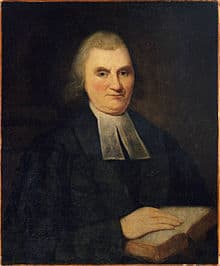
John Witherspoon, a Presbyterian minister and president of what is now Princeton University, was the only pastor to sign the Declaration of Independence. He was a very important man during the founding of the country. He linked the Christian thinking represented by the College of New Jersey (now Princeton University) with the work he did both on the Declaration of Independence and on countless very important committees in the founding of the country. This linkage of Christian thinking and the concepts of government were not incidental but fundamental. John Witherspoon knew and stood consciously in the stream of Samuel Rutherford, a Scotsman who lived from 1600-1661 and who wrote Lex Rex in 1644. Lex rex means “law is king”—a phrase that was absolutely earthshaking. Prior to that it had been rex lex, the king is law. In Lex Rex he wrote that the law, and no one else, is king. Therefore, the heads of government are under the law, not a law unto themselves.
Such a government, by its very nature, has limited authority; but that is a very good thing. Why? Because in such a society, people are unleashed to fulfill their God-given potentials in an unhindered fashion—as long as they do not infringe on others’ unalienable rights!
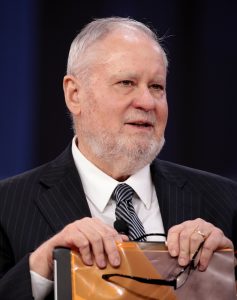
But wait! someone will say. What about situations among individuals and cities where the needs are stifling and the resources are in short supply? This is an important question, and it deserves a thoughtful response.
In the early aftermath of the coronavirus pandemic, Hillsdale College President Larry Arnn wrote, “We certainly need to provide a safety net for the workers who have lost their jobs in these shutdowns.” Then he hastened to add, “After that the most important thing is to end the shutdowns and restart the economy as soon as possible.”
We certainly need to provide a safety net for the workers who have lost their jobs in these shutdowns. After that the most important thing is to end the shutdowns and restart the economy as soon as possible.
—Hillsdale College President Larry Arnn—
The emphasis for Arnn is on the side of the scale far too few others have been emphasizing. Arnn believes in human potential to address the challenges facing the nation. A multitude of others seem to be looking primarily to government to provide solutions for everything. Government has, and has had, a role to play, of course. And I realize the private sector certainly has made its contribution as well. My point here, however, relates to expectations placed on government, and the evident underlying assumption that if government doesn’t act, we will all perish.
When government is seen as the primary problem solver in crisis situations, solutions from other sources that would have risen or been brought to the surface aren’t likely ever to see the light of day! Remember, government never produces anything. It can give only what it either creates by fiat (a fantasy) or what it takes from its citizens.
This Prager University video holds for us lessons we must recapture today if we are once again going to achieve our fullest potential as a nation. A transcript is available here.
PRINCIPLE TEN
When government oversteps its authority and begins to achieve ends contrary to those it was established and designed by God to accomplish, the people have a right and even a duty to hold it accountable.
We already have established that the Founders believed and acted on this principle. Again, the Declaration declares,
Prudence, indeed, will dictate that Governments long established should not be changed for light and transient causes; and accordingly all experience hath shewn that mankind are more disposed to suffer, while evils are sufferable than to right themselves by abolishing the forms to which they are accustomed. But when a long train of abuses and usurpations, pursuing invariably the same Object evinces a design to reduce them under absolute Despotism, it is their right, it is their duty, to throw off such Government, and to provide new Guards for their future security. — Such has been the patient sufferance of these Colonies; and such is now the necessity which constrains them to alter their former Systems of Government.
As we said earlier, we see in Scripture—in Romans 13:1-7 and 1 Peter 2:13-17 and in numerous instances in the Bible where God honored decisive actions of civil disobedience—that government’s authority is not its own but is divinely delegated. When the government acts in ways that directly conflict with its divinely given job description, it is off track. Disobeying a government’s mandates is very serious, but disobeying a government’s illegitimate mandates in order to obey God, and to keep from disobeying Him — that is a Christian’s responsibility.
Choosing the Way that Leads to Death

Consider how far America has fallen! At her founding in 1776, the Founders of the United States specifically stated that life is an unalienable, God-given right. Even as late as 1956, New York City acknowledged Easter, and thus Christianity, with reverence and respect. On Easter weekend in 1956 (Easter was on April 1), this was what the New York City Skyline looked like in the financial district of Manhattan. A year later, in 1957, Billy Graham would lead a series evangelistic meetings in New York that would last for sixteen weeks. The response was phenomenal!

On January 22nd, 2019—62 years later—New York Governor Andrew Cuomo ordered the spire of One World Trade Center lit in pink to commemorate the passage of the Reproductive Health Act (RHA), which at the time was the least restrictive abortion law in the nation. (Even though it’s hard to imagine anything any worse, worse laws have since passed elsewhere [also go here and here]). Other landmarks, including the Kosciuszko Bridge, the Governor Mario M. Cuomo Bridge, and the Alfred E. Smith Building in Albany, were fitted with special lighting as well. You can images of some of these structures here.
And then—barely more than a year after that, New York City had been shut down. Is God judging America? He has every right and every reason to do so. America thinks it is choosing the way of freedom, but instead it is choosing the way of death.

There’s more. As everyone who’s lived through the coronavirus pandemic and observed events with discernment knows, churches in many states have often been treated with disdain rather than as entities that might offer solutions, help, or encouragement to people in need. In a Wall Street Journal article titled “Politicians Shutter Churches and Synagogues, Then Tolerate Riots,” dated June 5, 2020, journalist Abigail Shrier wrote this:

For nearly three months, the country founded to guarantee religious freedom has seen its houses of worship shut down. Following local and state executive orders, Catholic churches held no Mass. Communion wasn’t taken, confessions weren’t heard, and Catholics went to their final rest without the comfort of the sacraments. Jewish prayer services, which require a quorum, were broken up by city governments or banned by state executive orders. New York City police were dispatched to break up a Jewish funeral and close down a yeshiva where Jews teach their children Torah.
“My message to the Jewish community, and all communities, is this simple,” Mr. de Blasio thundered in an infamous tweet, after having dispatched police to break up a funeral: “The time for warnings has passed. I have instructed the NYPD to proceed immediately to summons or even arrest those who gather in large groups. This is about stopping this disease and saving lives. Period.”
The time for warnings has passed. I have instructed the NYPD to proceed immediately to summons or even arrest those who gather in large groups. This is about stopping this disease and saving lives. Period.
—New York City Mayor Bill de Blasio—
All this seems a little odd now. Protesters in New York and across the U.S. have gone unmolested while gathering in “large groups,” even as rioters [protesting the tragic death of George Floyd] smashed and looted and set fire to public and private property. Los Angeles Mayor Eric Garcetti, who not long ago said keeping houses of worship shut was essential to save lives, marched on Tuesday with protesters, his mask and his lockdown suddenly forgotten.…
Those of us who raised objections to the restrictions were derided for failing to care about human life and told to “use Zoom.” Did anyone have the temerity to suggest that the protesters who claimed the streets without restriction might likewise have availed themselves of Zoom?
Part of the blame lies with religious leaders, many of whom accepted the rules of quarantine for months on end and offered no protest—as if nothing very important were on the line. Bishops might have said that going to Mass “is the most important thing you could be doing with your life, and they’re not saying that, which is a little disconcerting in some ways,” Connie Van Gilder, a Catholic in Milwaukee, told me. “Because it really should be the leadership that says, ‘Wait a minute—we don’t give it up that easily.’”
Part of the blame lies with religious leaders, many of whom accepted the rules of quarantine for months on end and offered no protest—as if nothing very important were on the line.
—Journalist Abigail Shrier—
Ms. Shirer continues, making the point that after a period of about 2 weeks to “flatten the curve” was extended many times over and everyone learned more information about COVID-19 and the virus that causes it, it became easy for observers to wonder why politicians trusted managers at places like Kroger and Publix with social distancing policies, even as they appeared to distrust priests, rabbis, and pastors.
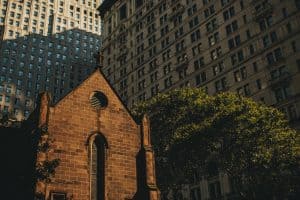
Ms. Shrier contends that had religious institutions been allowed to do their jobs, or more precisely, had they insisted on doing their jobs, they could have made a greater difference, potentially stirring the consciences of those who later would riot, perhaps to the point where the would-be rioters would have thought twice before engaging in violent activities. Or maybe, churches could have helped looters understand the necessity of 1) returning items they had stolen and 2) making restitution. (Ministry like this still can take place, mind you, even while respecting reasonable social distancing guidelines.) Sad to say, religious leaders apparently surrendered before even beginning to fight! No wonder they were and are disrespected.
That just doesn’t make any sense! someone will say. Those who eventually would riot wouldn’t have been in church anyway! Nor would the thieves darkened the doors of a church! Yet we must not lightly dismiss the points Abigail Shrier makes in her piece. Had religious leaders refused to be deemed non-essential, and had churches insisted on doing ministry in a nation that desperately needed their services, these actions would have been indicative of their having a much stronger influence in the larger community in the first place! It isn’t just the country at large that needs a spiritual awakening; the church does as well. And church leaders need to look to God anew to find a prophetic voice!
I do not believe we should be working to overthrow the United States government (more on this in a moment). But we must work to reform America, to call our nation back to its founding principles.
Next Steps
The situation indeed is dire, but we must remember that the situation our Founders faced also was dire. The challenges were different, but the risks were real for them, even as they are for us. Take five minutes and forty-five seconds to learn some of their stories.
In “Recapture the Spirit of ’76,” the article recommended as an assignment for your class to read before the fifth and final session, we highlighted 12 qualities the signers of the Declaration of Independence demonstrated before, as, and especially after they affixed their names to America’s founding document.
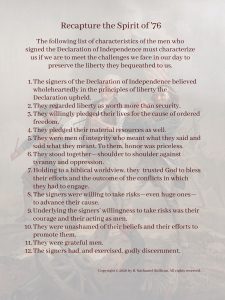
A PDF file of this graphic is available here.
We must, with God’s help, imitate them in 21st-century America in order to preserve the liberties they bequeathed to us. We in this context includes liberty-loving black Americans and Americans of other minorities, whites, women as well as men, young adults and older ones—all liberty-loving Americans who appreciate the Founders, despite their flaws, and what they bequeathed to us at the founding and the during the early years of this nation. We stand joyfully together, and we stand with firm resolve! The truth is, the Founders themselves set the United States of America on a course that has helped move it ever closer to practicing with an increasing degree of consistency the ideals these noble men initially laid out in the Declaration. Sadly, in other ways we have departed from their convictions, and we are losing our liberties because of it. This is one of the main reasons we need everyone who appreciates liberty and freedom to band together and to call this nation back to its founding principles.
We includes liberty-loving black Americans and Americans of other minorities, whites, women as well as men, young adults and older ones—all liberty-loving Americans who appreciate the Founders, despite their flaws, and what they bequeathed to us at the founding and the during the early years of this nation.
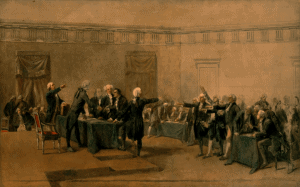
Admittedly, the challenges we face are of a different nature than those with which our forebears courageously dealt. But we can effectively overcome the obstacles before us if, relying on God’s help, we seek to cultivate these twelve traits!
Because the Founding Fathers of the United States upheld principles in the Declaration of Independence and in the US Constitution that work, we don’t need to overthrow the US government or work to replace it. But again, we do need to work for constructive reform within the system. In other words, we need to call our fellow Americans back to founding principles. Here is a list of some of the basics.
A Manifesto for American Renewal
 First, know history. Do not buy into the historical revisions about America’s founding and Founders that are so prevalent. The rhetoric is emotional, but it is simplistic and deceptive. It paints these good and noble men primarily as ardent racists and greedy capitalists. This is extremely misleading and unfair (also go here and here). Even though the Founders weren’t perfect, they still got a got a great deal right, and Americans through the decades, as well as the world, have benefitted immeasurably because of the sacrifices they made. Wallbuilders and WallbuildersLive! are excellent go-to organizations for reliable information about American history. So is Drive Thru History, which has a DVD series on pivotal events in America’s past. Word Foundations has a few series on history, as well, including this one.
First, know history. Do not buy into the historical revisions about America’s founding and Founders that are so prevalent. The rhetoric is emotional, but it is simplistic and deceptive. It paints these good and noble men primarily as ardent racists and greedy capitalists. This is extremely misleading and unfair (also go here and here). Even though the Founders weren’t perfect, they still got a got a great deal right, and Americans through the decades, as well as the world, have benefitted immeasurably because of the sacrifices they made. Wallbuilders and WallbuildersLive! are excellent go-to organizations for reliable information about American history. So is Drive Thru History, which has a DVD series on pivotal events in America’s past. Word Foundations has a few series on history, as well, including this one.
Second, pray for our country, including both leaders and citizens. Pray for religious leaders, too! We need national reform, including a spiritual awakening. As Christians, we need to be about sharing the gospel with our family members, neighbors, coworkers, friends, and acquaintances.
Third, as Christians, we need to know our Bibles and live according to a Christian worldview, applying biblical tenets in every area of our lives. This means, among other things, being pro-life in the sense that we will never consider supporting abortion in any form, or any candidate who supports it in any form. It means being pro man-woman marriage as well. I believe it also means being pro free enterprise. And it means rejecting the rhetoric and the narrative of social justice — because justice as we see it in Scripture needs no adjective.
Living as an authentic Christian and living according to a biblical worldview necessarily means opposing the social justice narrative. Why? Because social justice and biblical justice are incompatible.
Fourth, we must speak up. As Dietrich Bonhoeffer observed, “Silence in the face of evil is itself evil: God will not hold us guiltless. Not to speak is to speak. Not to act is to act.”
Fifth, we must participate in the political process and seek to hold elected leaders accountable. One possible way to work toward this is through a movement worthy of our consideration and investigation, the Convention of States. Reasonable people can disagree about this approach, but this approach is out there as an option.
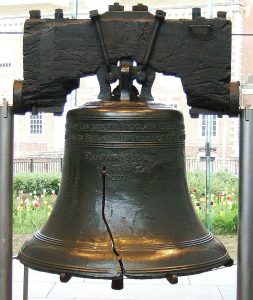
Sixth, it is critical that we realize the ideals the Founding Fathers upheld in the Declaration of Independence either are biblical truths or are rooted in biblical truths. Do you say you believe Scripture? If you genuinely do, you cannot reject any of the ten principles we have highlighted in this series. I am not saying the Declaration of Independence is inspired by God as Scripture is inspired by Him. I am saying that the Declaration’s tenets reflect biblical, eternal truths. Here are five terms we need to try to get people in our country to carefully reconsider, and to understand from the Founders’ perspective.
-
-
- A respect for law is the key to ordered freedom and liberty. By law we mean both natural law — laws that are “self-evident” in nature, and God’s moral law. Founding Father Benjamin Rush said, [W]here there is no law, there is no liberty; and nothing deserves the name of law but that which is certain and universal in its operation upon all the members of the community.” Gouverneur Morris, a signer of the US Constitution, said this: “[F]or avoiding the extremes of despotism or anarchy . . . the only ground of hope must be on the morals of the people. I believe that religion is the only solid base of morals and that morals are the only possible support of free governments. [T]herefore education should teach the precepts of religion and the duties of man towards God.”
- Liberty cannot be maintained if people insist on being autonomous, or free to follow their own desires without regard for others or the rights of others. Significantly, the biblical text inscribed on the Liberty Bell is taken from Leviticus, one of the first five books of the Bible. These first five biblical books often are called the Torah, or the Law. Leviticus 25:10 says in part, “[P]roclaim liberty throughout all the land unto all the inhabitants thereof.”
- Rights that are consistent with ordered liberty are negative rights, which are innate and endowed by God. These are maintained when government stays out of the way and allows citizens to pursue their dreams, and when the people permit their fellow citizens to achieve and accomplish all they can. As long as an individual’s quest respects the rights of others, he or she should be allowed to work to reach his or her God-given potential. Positive rights — rights that government creates, engineers, and maintains, actually are counterfeit rights. The more citizens demand government grant them, the closer the nation moves toward national bondage and even tyranny.
- When the Founders used the word entitle, they were referring to a recognition from other nations that “the Laws of Nature and of Nature’s God [would] entitle them.” This entitlement has a parallel in the “unalienable rights” to which the Declaration soon would refer. Either by implication or directly, Founders linked both the recognition from other nations and unalienable rights to God and His unchanging laws.
- Equality is not achieved through government manipulation. Instead, government must recognize it as already present, and work to make sure that, because all people are of equal value and worth, all must be equally unhindered from engaging in their own pursuits of happiness. Again, as long as the unhindered pursuits of citizens do not infringe on others’ rights, they should be allowed to work to achieve their dreams and reach their God-given potentials.
-
The critical battles we face are battles of ideas. We need to contend for the Founders perspectives on law, liberty, rights, equality, and the meaning of the word entitle. We need to create a massive movement to educate the public about these ideas and terms. This is the seventh item on our list.
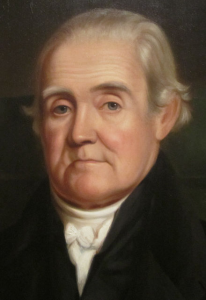
Let’s start with our own children. Noah Webster said, “Every child in America should be acquainted with his own country. He should read books that furnish him with ideas that will be useful to him in life and practice. As soon as he opens his lips, he should rehearse the history of his own country.”
Then let’s talk about these matters in our churches. They are, after all, thoroughly biblical. Daniel Webster declared, “If truth be not diffused, error will be.”
As Christians, we are agents of truth. Yes, we are to be loving agents of truth, but bearers of truth nonetheless. We are to uphold the truth even when doing so may appear to be unloving. Yet, while the surgeon’s knife cuts and therefore wounds, it does so ultimately to bring about healing.
The truth may sometimes be hard, but in the long run it is liberating. Let us get about doing this important work.
Liberty is at stake!
A teaching plan is available here.
Copyright © 2020 by B. Nathaniel Sullivan. All rights reserved.
top image credit: This idealized depiction of (left to right) Franklin, Adams, and Jefferson working on the Declaration was widely reprinted (by Jean Leon Gerome Ferris, 1900).
image credit: Larry Arnn
image credit: 3/29/1956 New York – Huge crosses, formed by lighted windows blaze above New York’s skyline as part of an Easter display in Manhattan’s financial district. This scene photographed from the roof of the Municipal Building features 150-foot-high crosses in the following buildings (L-R) the City Services Co.; City Bank – Farmers Trust Co.; and the Forty Wall Street Corp. (United Press Telephoto)
image credit: Bill de Blasio
image credit: the Liberty Bell
